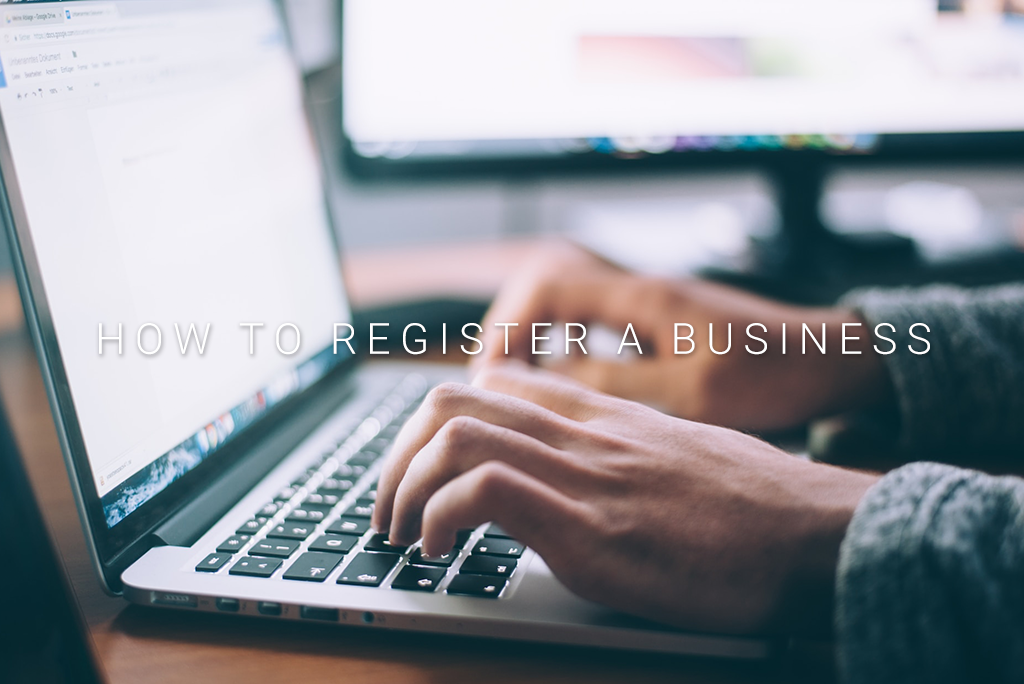No products in the cart.
Business
How To Register A Business
Starting a business can be an exciting and rewarding experience. However, before you can begin operating, you must register your business with the appropriate government agencies. Depending on the type of business you are starting, the registration process can vary. This guide will provide an overview of the steps you need to take to register your business.
Step-by-Step Guide to Registering Your Business
1. Choose a business structure: Before registering your business, you must decide on the type of business structure that best suits your needs. The most common types of business structures are sole proprietorship, partnership, limited liability company (LLC), and corporation. Each type of business structure has its own advantages and disadvantages, so it is important to research and understand the differences before making a decision.
2. Choose a business name: Once you have chosen a business structure, you will need to select a business name. The name should be unique and reflect the nature of your business. It is important to check with your state or local government to make sure the name is not already in use.
3. Register your business: Depending on the type of business structure you have chosen, you may need to register your business with the state or local government. This process may involve filing paperwork and paying a fee.
4. Obtain an Employer Identification Number (EIN): An EIN is a unique nine-digit number assigned by the Internal Revenue Service (IRS) to identify your business for tax purposes. You will need to obtain an EIN if you plan to hire employees or open a business bank account. Click here to get your EIN for free today!
5. Obtain necessary licenses and permits: Depending on the type of business you are operating, you may need to obtain certain licenses and permits from the state or local government. This process may involve filing paperwork and paying a fee.
6. Open a business bank account: Once you have obtained an EIN, you can open a business bank account. This will help you keep your business finances separate from your personal finances.
7. Set up a bookkeeping system: It is important to keep accurate records of your business finances. You can use a bookkeeping system to track income and expenses, as well as manage payroll and taxes.
8. Establish a business plan: A business plan is a document that outlines your business goals and strategies for achieving them. It is important to have a plan in place before you start your business.
9. Market your business: Once you have established your business, you will need to market it to potential customers. This can involve creating a website, advertising in local publications, and attending networking events.
10. Stay compliant: It is important to stay up-to-date on all applicable laws and regulations. This will help ensure that your business is operating legally and ethically.
What You Need to Know Before Registering Your Business
Before registering your business, there are several important considerations to keep in mind. First, you must decide on the type of business entity you wish to form. This will determine the legal and tax implications of your business. Common business entities include sole proprietorships, partnerships, limited liability companies (LLCs), and corporations.
Second, you must choose a business name. This should be unique and should not infringe on any existing trademarks. You should also check with your local government to ensure that the name is available for use.
Third, you must register your business with the appropriate government agencies. Depending on the type of business you are forming, this may include the Internal Revenue Service (IRS), the state government, and the local government.
Fourth, you must obtain any necessary licenses and permits. This may include a business license, a sales tax permit, and any other permits required by your local government.
Finally, you must decide on a business structure. This will determine how the business is managed and how profits and losses are distributed. Common business structures include sole proprietorships, partnerships, LLCs, and corporations.
By taking the time to consider these important factors before registering your business, you can ensure that your business is properly established and legally compliant.
How to Choose the Right Business Structure for Your Company
Choosing the right business structure for your company is an important decision that can have long-term implications for your business. The type of business structure you choose will determine the legal and financial obligations of your company, as well as the taxes you will pay. It is important to understand the different types of business structures available and the advantages and disadvantages of each before making a decision.
The most common types of business structures are sole proprietorships, partnerships, limited liability companies (LLCs), and corporations. Each type of business structure has its own set of advantages and disadvantages.
Sole proprietorships are the simplest and most common type of business structure. They are owned and operated by one person and are not legally separate from the owner. This type of business structure offers the most flexibility and control, but it also carries the most risk. The owner is personally liable for all debts and obligations of the business.
Partnerships are similar to sole proprietorships, but they involve two or more people. Each partner is responsible for the debts and obligations of the business, and profits and losses are shared among the partners.
Limited liability companies (LLCs) are a hybrid of sole proprietorships and partnerships. They offer the limited liability of a corporation, but the flexibility and control of a sole proprietorship or partnership. LLCs are owned by members, who are not personally liable for the debts and obligations of the business.
Corporations are the most complex type of business structure. They are owned by shareholders, who are not personally liable for the debts and obligations of the business. Corporations are subject to more regulations than other business structures, and they are more expensive to set up and maintain.
When choosing the right business structure for your company, it is important to consider the advantages and disadvantages of each type of structure. You should also consider the size and scope of your business, the amount of control you want to have, and the amount of risk you are willing to take. It is also important to consult with a qualified attorney or accountant to ensure that you make the best decision for your business.
Understanding the Different Types of Business Taxes
Business taxes are an important part of running a successful business. It is important to understand the different types of taxes that may be applicable to your business. This article will provide an overview of the different types of business taxes and how they may affect your business.
The first type of business tax is income tax. This is a tax on the profits of a business. It is based on the amount of money the business earns and is usually paid quarterly or annually. The rate of income tax varies depending on the type of business and the jurisdiction in which it is located.
The second type of business tax is payroll tax. This is a tax on the wages and salaries paid to employees. It is usually paid monthly or quarterly and is based on the amount of wages and salaries paid. The rate of payroll tax varies depending on the type of business and the jurisdiction in which it is located.
The third type of business tax is sales tax. This is a tax on the sale of goods and services. It is usually paid when the goods or services are purchased and is based on the amount of the sale. The rate of sales tax varies depending on the type of business and the jurisdiction in which it is located.
The fourth type of business tax is property tax. This is a tax on the value of real estate owned by the business. It is usually paid annually and is based on the assessed value of the property. The rate of property tax varies depending on the type of business and the jurisdiction in which it is located.
The fifth type of business tax is excise tax. This is a tax on certain goods and services. It is usually paid when the goods or services are purchased and is based on the amount of the sale. The rate of excise tax varies depending on the type of business and the jurisdiction in which it is located.
Finally, the sixth type of business tax is franchise tax. This is a tax on the privilege of doing business in a particular jurisdiction. It is usually paid annually and is based on the amount of business done in the jurisdiction. The rate of franchise tax varies depending on the type of business and the jurisdiction in which it is located.
Understanding the different types of business taxes is essential for running a successful business. It is important to be aware of the taxes that may be applicable to your business and to ensure that you are paying the correct amount of taxes.
Tips for Completing the Business Registration Process Quickly and Easily
1. Gather all the necessary documents and information before beginning the registration process. This includes the business name, address, contact information, and any other relevant information.
2. Research the requirements for registering your business in your state or locality. This will help you understand what documents and information you need to provide.
3. Choose the right business structure for your business. This will determine the type of registration process you need to complete.
4. Contact your local government office to find out what forms and fees are required for registering your business.
5. Complete the registration forms accurately and completely. Make sure to include all the required information and documents.
6. Submit the registration forms and fees to the appropriate government office.
7. Follow up with the government office to ensure that your registration has been processed.
8. Keep a copy of your registration documents for your records.
By following these tips, you can complete the business registration process quickly and easily.
At Boppr we love to see you grow! Be sure to check out how Boppr can impact your growth by utilizing our digital business card devices and app!





